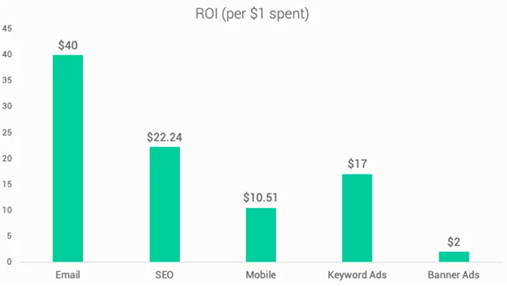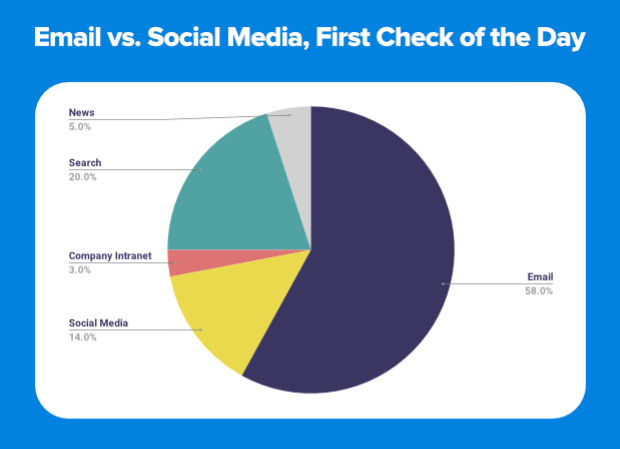
Email marketing is one of the most powerful tools a small business can use to communicate directly with customers, increase brand awareness, and drive sales. In an era where digital communication is key, email provides a cost-effective and efficient way to stay connected with both current and potential customers. With the right strategy, email marketing can help small businesses thrive in competitive markets. This comprehensive guide will explore everything small business owners need to know about email marketing, including its benefits, strategies, niche applications, and why partnering with an email marketing agency can amplify success.
What is Email Marketing for Small Businesses?
Email marketing is a form of direct marketing that uses email to promote products or services. For small businesses, email marketing offers an opportunity to establish a personal connection with customers, update them on products, and provide special offers. Unlike social media platforms, where algorithms control visibility, emails land directly in a subscriber’s inbox, offering more control and direct access to your audience.
For small businesses, email marketing can be particularly beneficial because it allows companies to:
- Build and maintain customer relationships.
- Reach a large audience at a low cost.
- Promote brand loyalty and repeat business.
Why Small Businesses Need Email Marketing
One of the biggest reasons small businesses need email marketing is its incredible return on investment (ROI). According to industry research, for every $1 spent on email marketing, businesses can expect an average ROI of $42. Moreover, 89% of marketers say that email is their primary channel for lead generation.
But beyond ROI, email marketing allows small businesses to nurture leads over time, turning prospects into paying customers. It enables direct communication with customers, cutting through the noise of other digital marketing channels. Whether it’s sharing new product releases, offering discounts, or providing helpful information, email marketing keeps small businesses top of mind.
The ROI of Small Business Email Marketing
As mentioned earlier, the average ROI for email marketing is $42 for every $1 spent. This makes it one of the most cost-effective marketing channels available. In comparison to traditional advertising or even other digital strategies like paid social media, email marketing provides significant value for the cost.

Benefits of Email Marketing for Small Businesses
Here’s a deeper look at why email marketing is so effective for small businesses:
- Building Customer Relationships: Email allows small businesses to engage with their audience on a personal level. By providing valuable content, personalized offers, and timely updates, businesses can establish trust and foster long-term relationships with customers.
- Driving Sales and Repeat Business: Email marketing can be a consistent driver of sales through targeted campaigns like product launches, seasonal promotions, and limited-time offers. Businesses can also use email to nurture repeat business by rewarding loyal customers with special deals.
- Brand Awareness: Regular email communication keeps your brand at the forefront of your customers’ minds. Whether it’s through weekly newsletters or monthly updates, consistent emails remind your audience about your business.
- Customer Retention: Email marketing helps keep your customers engaged. With tools like segmentation and automation, businesses can send personalized content that makes customers feel valued, increasing loyalty and retention.
Why Email Marketing is Essential for Small Business Growth
Email marketing is key to business growth because it provides a unique, customizable, and cost-effective way to reach your audience. Here are a few reasons why it’s essential for small businesses:
- Personalized Customer Engagement: Through segmentation, businesses can divide their email list into specific groups based on interests, behaviors, or demographics. This allows small businesses to send tailored messages to each group, increasing the relevance and impact of their campaigns.
- Automation for Efficiency: Email marketing platforms offer automation tools that allow small businesses to set up pre-scheduled campaigns. This ensures that emails go out at optimal times and helps save time on repetitive tasks, allowing business owners to focus on other areas of growth.
- Measurable Results: Email marketing platforms provide analytics that show how campaigns perform, offering insights into open rates, click-through rates, and conversions. This data can be used to refine future campaigns, ensuring they are continually optimized for success.

According to research by Optinmonster, checking email is often the first thing people do online, with 58% of users doing so before checking social media or the news. Additionally, 88% of email users check their inbox daily, and 39% check it three to five times a day. These statistics make email marketing an essential tool that should be incorporated into any small business’s strategy.
Email Marketing Strategies for Small Businesses
To succeed in email marketing, small businesses need a clear strategy. Here are some key steps to consider:
- Create a Clear Plan: Establish goals for your email marketing campaigns, such as increasing website traffic, boosting sales, or nurturing leads. With clear objectives, you can tailor your messaging accordingly.
- Build Your Email List: A quality email list is the backbone of successful campaigns. Offer incentives like discounts, free resources, or exclusive content to encourage customers to subscribe.
- Segment Your Audience: Not all subscribers are the same. By segmenting your list into categories like new customers, loyal customers, and leads, you can send more relevant content to each group.
- Craft Engaging Content: The success of your email campaigns hinges on content. From attention-grabbing subject lines to compelling body copy, your emails should provide value to readers while including strong calls to action (CTAs).
- Test and Optimize: Use A/B testing to determine what works best for your audience. Test different subject lines, email designs, and content formats to improve performance.
Crafting Engaging Email Content for Small Businesses
Creating the right content for your email campaigns can make or break your strategy. Here are a few tips to help your emails stand out:
- Write Compelling Subject Lines: The subject line is the first thing recipients see, and it directly impacts your open rate. Aim for subject lines that are concise, attention-grabbing, and clearly convey the email’s value.
- Focus on Value: Always prioritize delivering value to your readers. Whether it’s informative content, exclusive deals, or useful updates, your emails should provide something of interest to the recipient.
- Use Strong CTAs: Every email should include a call to action. Whether you want recipients to shop your latest collection, schedule a consultation, or download a resource, make sure your CTA is clear and compelling.
How to Choose the Right Email Marketing Agency for Your Small Business
Small businesses often face resource constraints, which is where partnering with an email marketing agency can provide immense value. Agencies bring expertise, experience, and the ability to scale marketing efforts efficiently.
When selecting an email marketing agency, consider these factors:
- Industry Expertise: Choose an agency with experience working with small businesses in your industry.
- Proven Track Record: Look for case studies, testimonials, and past successes that demonstrate the agency’s ability to deliver results.
- Comprehensive Services: The right agency should offer a full range of email marketing services, from strategy development to execution and analytics.
Niche Applications of Email Marketing for Small Businesses
Email marketing is versatile and can be customized for different industries. Let’s explore how email marketing can benefit specific small business niches:
Email Marketing for Lawyers
Law firms can use email marketing to build trust and maintain relationships with clients. Regular updates on legal news, changes in regulations, or even case studies can keep clients informed and engaged. For example, a lawyer could send monthly newsletters discussing common legal issues relevant to their clients.
Email Marketing for Real Estate Agents
For real estate agents, email marketing is a powerful tool for promoting new listings, open houses, and market trends. Realtors can send personalized emails to prospective buyers based on their preferences, ensuring higher engagement.
Email Marketing for Financial Advisors
Financial advisors can use email marketing to share investment tips, market insights, and personalized financial planning advice. This helps build trust and positions them as thought leaders in the industry.
Email Marketing for Restaurants
Restaurants can leverage email marketing to announce special events, new menu items, and exclusive deals. Sending personalized birthday offers or loyalty rewards encourages repeat customers.
Insurance Email Marketing
Insurance companies can use email campaigns to educate customers about policy options, coverage details, and renewal reminders. This keeps clients informed and can lead to upselling opportunities.
HVAC Email Marketing
For HVAC businesses, email marketing can be used to remind customers about regular maintenance, offer seasonal promotions, and share testimonials. Automated service reminders for maintenance or filter changes ensure long-term customer retention.
Email Marketing for Startups
Startups need to build brand awareness and grow their customer base. Email marketing is a cost-effective way to achieve both. Startups can use targeted email campaigns to promote their product launches, share progress updates, and offer early access to new features or services.
Measuring Success: Analyzing Email Marketing Campaigns for Small Businesses
Success in email marketing comes from consistent tracking and analysis. The key metrics to monitor include:
- Open Rates: The percentage of people who open your emails.
- Click-Through Rates (CTR): The percentage of people who click on links within your emails.
- Conversions: The number of subscribers who take the desired action, such as making a purchase.
Using these insights, small businesses can refine their strategies and improve their campaign performance over time.
A/B Testing in Email Marketing for Small Businesses
A/B testing involves sending two different versions of an email to segments of your list to see which performs better. You can test subject lines, content, CTAs, or even sending times to optimize your email strategy. Small businesses can use A/B testing to improve open rates, click-through rates, and overall conversions.
Why Choose Us for Your Small Business Email Marketing Needs
At OVRHAWL, we offer comprehensive digital marketing services for small businesses at a fraction of the industry standard cost. Beyond just email marketing, we provide everything from digital strategy and branding to social media management and SEO. We’ll be by your side for all your digital marketing needs, ensuring your brand evolves as your business grows. Specializing in small businesses, our all-included package costs less than what you’d typically pay just for email marketing alone. Let us help you grow with tailored, affordable solutions that fit your unique needs. Reach out to us today!
Final Thoughts: Boosting Your Small Business with Email Marketing
Email marketing is an invaluable tool for small businesses looking to grow and thrive in today’s competitive landscape. By implementing the right strategies and partnering with an experienced email marketing agency, small business owners can leverage the power of email to boost customer engagement, increase sales, and build long-term loyalty.
FAQs: Small Business Email Marketing
How can email marketing benefit small businesses?
Email marketing allows small businesses to engage with customers directly, build brand loyalty, and generate repeat business through personalized campaigns.
What’s the best frequency for sending marketing emails?
It depends on your audience, but sending emails once a week or biweekly is often an effective balance. Consistency is key without overwhelming subscribers.
How can email marketing help build a small business brand?
Email marketing builds brand recognition through regular communication. Providing value in each email keeps your brand top-of-mind with customers.
Should I outsource email marketing to an agency?
Outsourcing email marketing to an agency saves time, ensures professional execution, and brings a higher level of expertise that can maximize ROI.
How can niche industries like HVAC or insurance benefit from email marketing?
Niche industries can benefit from targeted and timely email campaigns. For example, HVAC companies can send maintenance reminders, while insurance agencies can provide policy updates or renewal notices.
What’s the best way to grow an email list for my small business?
Offer incentives such as discounts, exclusive content, or free resources in exchange for email sign-ups. Promote sign-up opportunities on your website and social media channels.